Research: Decreased Use of Maternal Health Services During Start of Pandemic
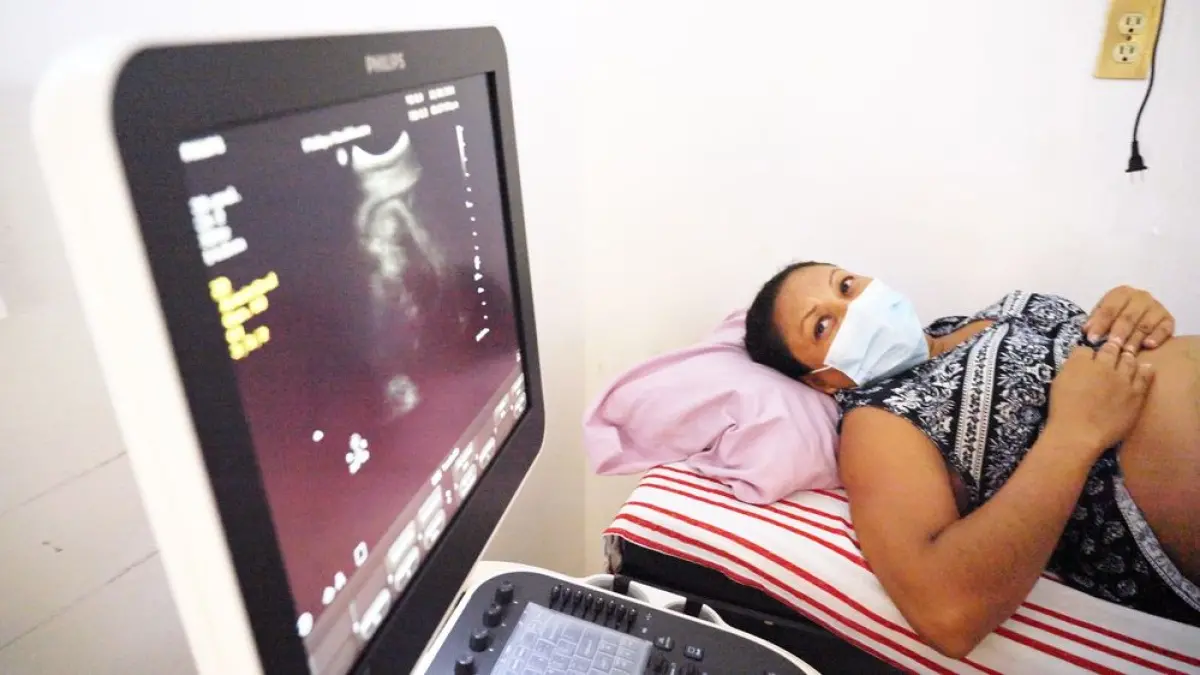
Prenatal appointments, childbirth at health facilities impacted by COVID-19
Posted on June 14, 2022
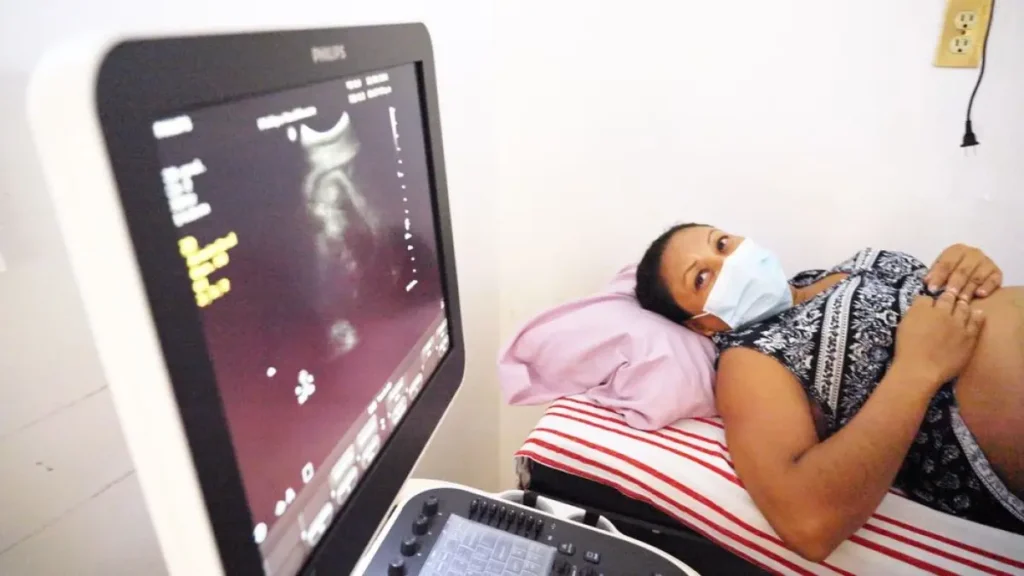
COVID-19 has been devastating all around, but a new study evaluates its toll on new mothers in six countries where Partners In Health works.
A report by an international team of academic and on-the-ground researchers, published in BMJ Global Health, found that across 37 PIH-supported health facilities, almost all experienced significant disruptions in the use of maternal health services. Specifically, the researchers identified declines in expectant mothers’ first prenatal appointments as well as deliveries at health facilities during the start of the pandemic in 2020.
“That kind of drop really happened everywhere,” said Nurse Midwife Isata Dumbuya, a study author and director of reproductive, maternal, and newborn health at PIH in Sierra Leone, one of the countries studied, along with Liberia, Haiti, Malawi, Mexico, and Lesotho. “People were scared. No one knew with COVID what it was, so their first reaction was to stay away until it’s all clear.”
Overall, the study found significant declines in expectant mothers’ first prenatal care visits in Haiti (18% drop) and Sierra Leone (32% drop) and facility-based deliveries in all countries, except Malawi, from March to December 2020. Presumably, more women gave birth at home, though that data was not collected in the research. Nor did the study compare the PIH-backed facility numbers with national rates of maternal health service use.
In addition to analyzing expectant mothers’ use of hospitals and clinics, the study also assessed the strategies used in various countries to mitigate the pandemic’s impact on service disruptions. For example, extra outreach by community health workers (CHWs) and targeted communications campaigns to educate residents about COVID-19 and alert people to safety measures at health facilities, among other measures, helped allay patients’ fears and restore trust in the health system, researchers report.
Each country responded with somewhat different results, but—taken together—they provide concrete evidence that the current pandemic had a deep impact on maternal health services where PIH works globally.
Sierra Leone
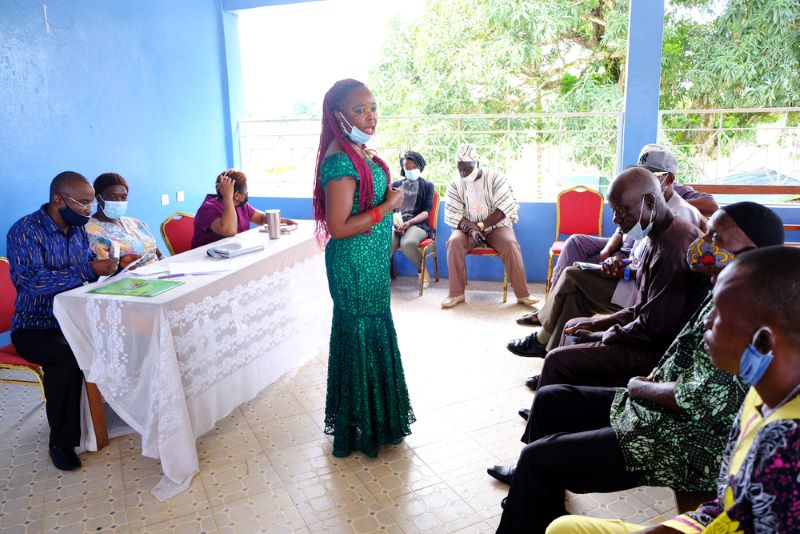
In Sierra Leone, which in 2020 was found to have the worst maternal mortality of any country worldwide, the decline in maternal health visits and the 16% drop in facility-based births was worrisome, Dumbuya said, especially since the numbers had been improving before the pandemic.
“But it could have been a lot worse,” she added. Drawing from experience overcoming previous outbreaks, notably Ebola in 2014, Dumbuya said the local team had already established strong relationships with the community and put those connections to work as COVID-19 began taking hold. “We have a history with outbreaks,” she said, “so we were able to quickly gather the support network we’d had with Ebola to let people know we can manage this, and we’re open for business.”
Community health workers were joined by doctors, nurses, midwives, mental health practitioners, and others to visit communities, sometimes in vans equipped with loudspeakers, to offer education and the latest guidance on COVID-19, as well as recommendations for pregnant women. Plans to counteract misinformation were put in place, researchers report, “dispelling women’s fear of becoming infected at health facilities.”
Now, Dumbuya said, the number of women seeking maternal health visits has come back “even more.” Facility-based deliveries at Koidu Government Hospital were up by 30% in 2021 compared to 2019 before the pandemic, she said.
Haiti
Haiti’s decline in maternal health visits, “was likely due to the full lockdown initiated in mid-March 2020 by the national government in response to the rapid spread of the disease in other countries as well as fear of COVID-19 infection in facilities,” the study said. To minimize the disruptions, Zanmi Lasante, as PIH is known in Haiti, collaborated with the Haitian Ministry of Health to adapt safe distancing in the prenatal waiting room and encouraged women to go to the PIH-supported Hôpital Universitaire in Mirebalais to deliver their babies. Additional support through regular telephone outreach also helped.
Lesotho
Lesotho was the last country in Africa to report its first COVID-19 case, researchers noted, “however, an alarming number of COVID-19 cases were detected after the influx of people traveling from South Africa for Christmas vacation.” From March to December 2020, PIH-supported facilities in Lesotho did not experience significant declines in the number of first prenatal visits, the study said, but facility-based deliveries were 12% lower than expected.
Researchers identified several measures that supported ongoing maternal health services, including training on all aspects of COVID-19, providing PPE, screening, testing, and patient follow-up, as well as adapting spaces for safe distancing.
Liberia
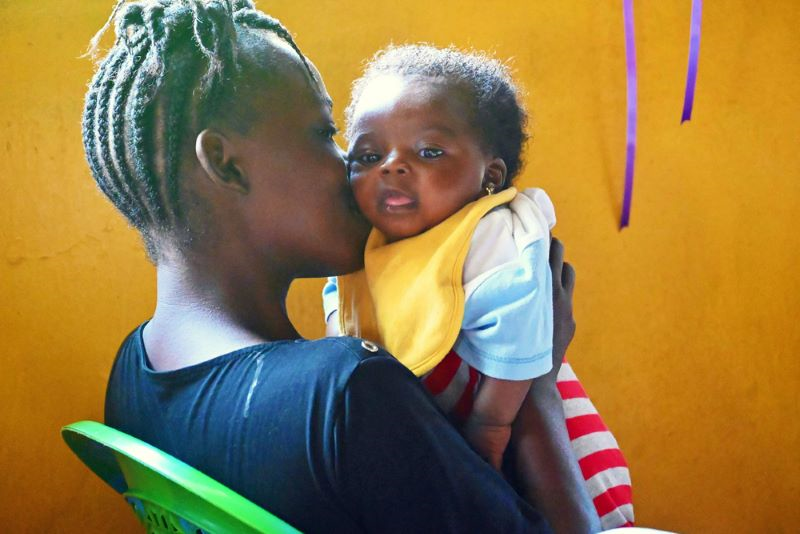
In Liberia, researchers found that “the advent of COVID-19 was accompanied by misinformation campaigns about the disease, which spread disbelief about its potential severity and mistrust in the management of the pandemic by health authorities.” That mistrust may have negatively affected the demand for maternal health services, researchers said. In response, PIH Liberia focused on increasing the public’s awareness about the virus and the availability of services.
The most surprising finding in Liberia, said Dr. Sarah Anyango, Deputy Director for Clinical Services and Maternal Health Lead for PIH Liberia, was the “drastic” decline of births at health facilities—21% lower than expected during the study period. “Every pregnant mom was scared they would get it,” Anyango said. “The CHWs gave the women reassurances, but at first, the CHWs were afraid too.” Ultimately, she said, the CHWs, “played a big part in making sure women eventually felt safe.” The so-called “household model” of care, in which health workers are assigned to visit everyone in a single home, proved particularly effective during the pandemic, Anyango added.
“We had already trained CHWs to identify mothers with high-risk pregnancies, so when COVID came we trained them to look for pregnant moms and help them get to health facilities if needed.”
Other safety measures included establishing separate COVID and non-COVID labour suites, and testing every woman entering a delivery room were applied, she said.
Malawi
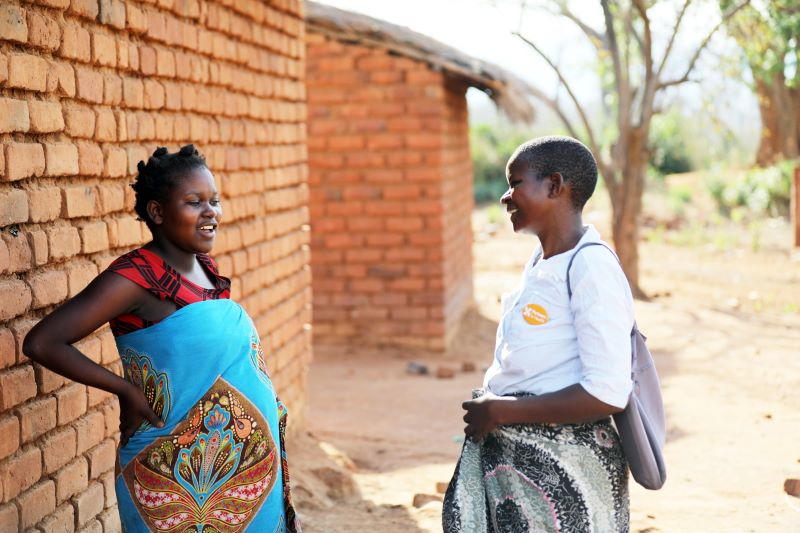
PIH Malawi, locally known as Abwenzi Pa Za Umoyo (APZU), provides integrated maternal care to the women in Neno District, including prenatal, delivery, and postnatal care. This, said the study, is reinforced by the CHW program that helps link pregnant women, identified in their homes, to health facilities.
From the study: “In April 2020, the Malawi government announced plans to impose a national lockdown; however, the lockdown was canceled. …The lack of nationally imposed restrictive measures likely facilitated maintained access to health services compared with other countries.”
Not only did the Malawi Ministry of Health quickly develop guidelines for maternal health during COVID-19, it also “embarked on the emergency hiring of additional health workers” and Neno District’s CHW support was never suspended, indeed outreach for pregnancy-related visits increased. As a result, the study found: “Maternity care service use in APZU-supported facilities did not suffer any significant monthly declines after March 2020. It even experienced significant increases for first antenatal visits in the months of July, September, and December 2020. Looking at the entire study period, there were no significant variations in maternity care service use during the COVID-19 pandemic in 2020.” Additionally, the study said: “The APZU team developed a communication plan to provide reassurance about the safety of care-seeking and to dispel the fear of getting infected in health facilities.”
Isaac Mphande, an APZU primary nursing manager, said women in Neno District have become accustomed to relying on health facilities for childbirth due to fines imposed by traditional leaders or chiefs on expectant mothers who give birth at home. “When a woman delivers at home,” he said, “they are slapped with a fine which is in the form of cash or other things like goats or chickens. These fines are collected by the chiefs and not the health facility staff…to prevent home deliveries.” He said at this point “very few women” in Neno District are giving birth at home.
Mphande said women consistently hear from CHWS and others about the benefits of receiving care at the health facilities. Throughout the pandemic, he said, “facilities were kept covered by skilled birth attendants such that services were not disrupted.”
Mexico
After the COVID-19 pandemic was officially declared a national emergency by the government on March 2020, fear and uncertainty spread throughout the areas served by Compañeros En Salud (CES), as PIH is known in Mexico. A weekly radio message by the CES birthing center’s obstetric nursing team was canceled; CHWs spaced out visits to pregnant women; and the basic community hospital in Jaltenango stopped attending deliveries to prevent pregnant women from getting COVID-19, what resulted in the adjacent CES-supported birthing center attending all pregnant women from the surrounding areas.
The result was major disruptions in maternity service use, the study said: “Overall, the number of [facility-based deliveries] was significantly lower than expected by 16% from March to December 2020.”
The study found significant obstacles to care. “Some rural communities prohibited people from leaving and entering, making it difficult for women to access the birthing center to give birth, the study stated. “In addition, fear and uncertainty may have led women to seek other options for delivery care. This is consistent with some reports indicating an increase in home births supported by traditional midwives during the pandemic in Chiapas.” After the first months, things began to improve, researchers found. “Fear began to dissipate as women who had experienced a safe delivery at the birthing center shared their positive experiences with other women, potentially resulting in a gradual increase of pregnant women coming to the facility for delivery.”
A statement from the CES team summed up the study’s major takeaway: “We hope that the lessons learned at the PIH sites will help other teams develop context-specific solutions to the challenges brought on by the pandemic in their local contexts.”
Originally published on pih.org



